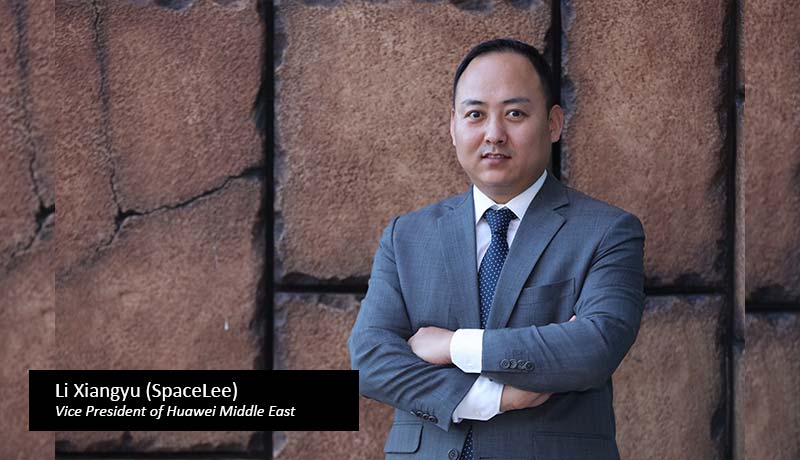
By Li Xiangyu (SpaceLee), Vice President of Huawei Middle East
The information and communications technology (ICT) sector has always been a cornerstone for economic development globally, but especially for the Middle East. Some of the region’s biggest markets rely on digital transformation to bolster the growth of their knowledge-based economies, reducing the dependence on oil. The challenges brought forth by the COVID-19 pandemic led to rapid digitization and much faster adoption of new technologies like 5G, Artificial Intelligence (AI), Cloud Computing, and Internet of Things (IoT).
As we look forward to a post-pandemic world, the ICT industry will continue to be the fuel behind society’s progress. In the near future, we will live in an intelligent and fully connected society. It is estimated that by 2025, the number of global connections will reach 100 billion, an increase of five times that of 2019. 100% of enterprises will connect cloud services, and 85% of enterprise applications will be deployed in the cloud.
According to IDC, governments across the Middle East are expected to spend more than $15 billion by 2023. To support this massive growth of the ICT sector, we must hone and foster the future ICT workforce. The Arab world has one of the highest populations of youth globally, and with the right education and skills training, we can empower them to join the ICT workforce and contribute directly to the region’s digital economies of the future.
At Huawei, we are driven by our commitment to develop a strong ICT talent ecosystem that can support the ICT industry’s rapid growth. Through initiatives like the Huawei ICT Competition, we have provided tens of thousands of young people across the Middle East with ICT education and job opportunities. With the help of partnerships with government entities, private sector partners, and educational institutions, we can develop the Middle East’s ICT Talent ecosystem, nurturing young minds while fostering an innovation-led mindset amongst the next generation of ICT leaders
The Huawei ICT Competition is now in its fourth edition, and in the past four years, more than 60,000 students have participated in it. It has become the largest competition for students from universities in the region. In 2020, we received support from 20 ministries and government authorities, and more than 15,000 students from 442 local colleges and universities in 10 Middle East countries participated in this event, even during the pandemic.
By taking advantage of global knowledge and best practices through these competitions, we are able to bridge the gap between the classroom and the workplace, increasing national ICT competitiveness while encouraging local communities to contribute to national visions for digital transformation and socio-economic development. As we’ve witnessed first-hand at the ICT Competition, the Middle East’s youth is bursting with potential and innovative ideas, and with the right platform, they can usher in the new era of digital growth for the region.
